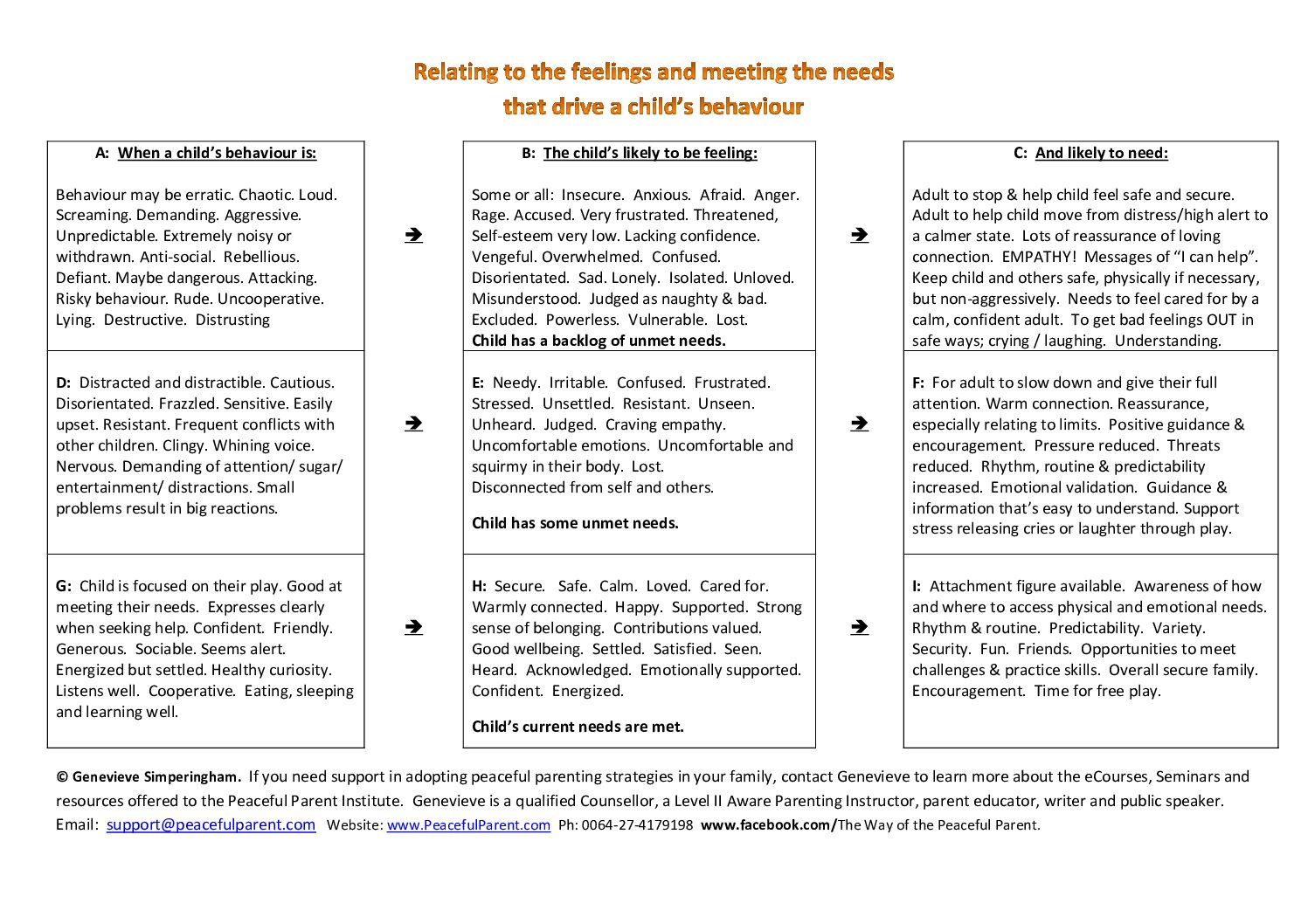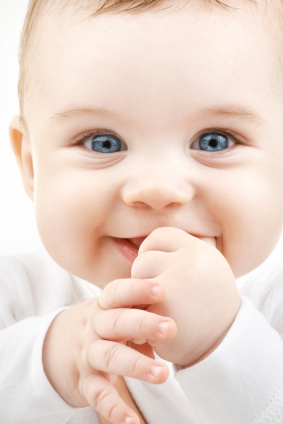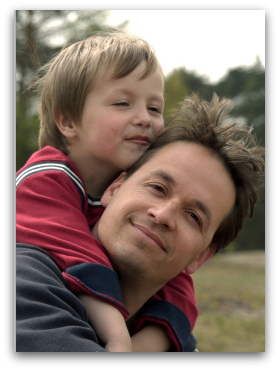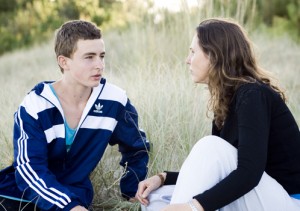 Peacefully parenting your anxious or resistant child
Peacefully parenting your anxious or resistant child
by Genevieve Simperingham
First published in The Natural Parent Magazine New Zealand.
So many adults didn’t gain the emotional support they needed growing up as they navigated friendships, social challenges and generally adapting to new environments, situations and activities. The majority of adults also now experience mild to severe anxiety in social situations, in new environments or when learning new skills.
Research shows that for the majority of adults, their default mode of thinking is highly critical of themselves and others and their default mode of feeling is much more insecure than confident. The teenagers who don’t use alcohol to alleviate stress in social situations are in the small minority.
So, how can we best help our children tackle life’s challenges and adapt to change in a way that overall helps them increase their self-confidence, their trust in themselves and their world? How can they develop the balance between listening to and trusting their feelings of apprehension, while also gaining the courage to tackle challenges?
We want our children to skilfully manage their nervous feelings, now and throughout their teens, well enough to be able to think straight and discern whether taking action is wise or overly risky?
Many parents and teachers adopt an approach that’s more flippant or dismissive
For many parents and teachers alike, until they stop and think about it, it’s all too easy to respond to the child’s concerns, resistance or anxiety with statements like; “don’t worry, it’ll be fine”, “it’s not a big deal” or “just do it”. This sadly can leave a child all alone with their apprehensions or anxieties, and they may well feel ashamed or judged to be weak or too sensitive. Parents often think they’re reassuring their child with messages such as “don’t worry, you’ll do great”. Yet, such comments are more likely to result in the child shutting down their feelings and not feeling safe to show their vulnerability. Yet if a child is already worried or nervous, this approach again leaves them feeling alone to process those big feelings.
Children can better tolerate the nervousness and apprehension inherent in facing challenges when they sense their parent has more patience and understanding of their struggles.
We live in a society where children are applauded for being independent
And parents can feel a lot of pressure to prove themselves through their child’s level of confidence and ability to be assertive. Parents can understandably feel quite anxious when their child is struggling in certain areas. And hence can, consciously or unconsciously, transfer pressure onto their child. Yet the child is feeling resistant or anxious, be it in a social situation or when taking part in a new activity like swimming or sports, this pressure can lead to even greater resistance to tackling the challenge. It’s important not to discount or minimize the child’s feelings and needs in these situations, and important that we don’t inadvertently condition them to themselves discount their apprehension. In new situations, it’s natural for children to be discerning, it’s natural for them to gain the security that their attachment figure will remain available as they venture forth. One child may be nervous, while another child may just have a need to become more familiar, to watch and learn more before engaging and before leaving their parent’s side. This very same discerning approach can be highly beneficial and healthy for a teenager who’s navigating which situations, groups and activities they feel truly good about being involved in!
Sone of the biggest challenges for children is separating from their parent and adapting to new situations
The child has a deep primal instinctive need to maintain physical and emotional closeness with their parent (or caregiver). Hence it can bring up a lot of insecurity and separation anxiety when adapting to a new caregiver and/ or environment like a new early childhood centre, or adapting to any new activity or group of people. Children generally need an existing attachment figure (parent or a primary caregiver) to be the bridge, to be present while they start to connect. With the security of their parent being present and available, they can slowly venture forward with greater confidence to make connections and slowly but surely bond with others, allowing them to eventually feel secure when their parent isn’t present.
This can be a delicate process and when a child feels rushed and pressured, it can increase their resistance, sending them back to square one to regain the security that they’ll be supported without pressure.
What helps children adjust to an early childhood environment?
It can work best when the teacher teams up with the parent, working together to help the nervous child to build bonds and find their solid ground. It’s easy for a parent to be intimidated into going along with a settling in process, or lack thereof, that doesn’t feel comfortable to them. Most parents have some lingering authority issues from their childhood years in school and can struggle to speak up to represent their child’s best interests, yet it’s our job as parents to advocate for our children and to help the teacher in their often challenging role of helping the child integrate. For more specific advice on this topic read Helping children adapt to a new early childhood environment.
Our influence in supporting our child’s development of emotional and social skills depends largely on the quality of the connection and how well the communication is working. Our primary role as parents and caregivers is to maintain the warm connection and open lines of communication.
MRI research measuring brain activity of people experiencing stress.
Interesting research by Dr James Coan, a Professor of Clinical Psychology at Yale University used MRI brain imaging to measure the brain activity of people experiencing mild electric shock! They compared how well the brain regulated and alleviated distress when the person’s hand was held by a stranger compared to holding the hand of their loved one. And as you’ve probably guessed, holding the hand of a loved one greatly reduced their stress in most cases. Further research has taken this a step further and compared the brain activity and stress levels when the person undergoing the stressor and holding the hand of their loved one was feeling well connected with them, compared to those who felt less connected or secure with their partner. And understandably, they gained more comfort from their partner when the connection was strong.
“If you’re feeling connected to someone you feel secure with and trust, this takes a huge load off your brain.” And: “Our most potent and efficient way of regulating emotional distress is to be connected with another person who you trust.” ~ Jon G. Allen, PhD, a psychologist and psychiatrist who has written extensively on the subject of attachment.
So applying this insight to helping our children work through stressful situations, it makes sense that when we work to improve or better maintain the quality of connection with our child, the more comfort and reassurance our child may gain when feeling nervous or stressed. Planning ahead to have extra time to connect in a meaningful way on a day when our child is facing a challenge might result in them gaining the kind of support from us that gives them both more clarity about what’s needed in the situation, but even more importantly, truly builds up their inner strength and belief in themselves. When a child can trust that their parent is truly taking their fears or concerns seriously, they tend to then, and only then, gain comfort from the parent’s reassurances, and become more open to letting their parent problem-solve with them.
Children have a natural ability to get their worries, fears, anxieties (and even the impacts of trauma) out of their system
Children naturally resolve these feelings through talking, venting their anger (non-aggressively), crying, raging and also through play and laughter. Without enough space to really share and feel heard with their complaints, apprehension or fears, a parent’s well-meaning advice can add to a child’s fears and insecurities. In fact, the child may well hear advice “what you should do is … ” as criticism. They may worry that their parent thinks they’re not being brave enough, confident enough, independent enough or assertive enough. Yet, when a child is feeling truly understood and also feeling their parent’s belief in them, this puts a child into growth mode. In growth mode, children tend to have a lot more both capacity to find the inner strength to assert themselves, be it with a friend, a sibling, teacher, relative or their parent. When feeling understood and cared for, children tend to have more capacity and motivation to hear and care about the perspective of others (depending on age of course), they tend to have more self-control and self-discipline, and are better able to manage and work through strong emotions like frustration, anger, fear, nervousness, disappointment or sadness.
“Naughty” behaviour or symptoms of stress?
So much of the behaviour that signals a child needs help with their insecurities are often missed because we’re so conditioned to judge a child to be difficult or just looking for attention. Then with teenagers, who generally are dealing with huge amounts of stress and pressure in juggling so many relationships and needs, adults can expect rebellion and reactivity from them. Yet in my experience as a mother of two teens and counsellor who helps many families of teens, the 13 or 16-year-old continues to need to feel secure in our non-judgmental emotional support and willingness to listen and engage just as the 3 or 6-year-old does. And will truly seek the support they need when they can trust their feelings will be heard respectfully and sensitively without their parent either overreacting or under-reacting.
Managing our own worries and fears
The parent who’s feeling worried or anxious about a challenge or transition their child is navigating, may be unaware that when their child looks at them they’re seeing their apprehension and this can have a generally inhibiting effect on the child. When a parent is going through a particularly rough patch, without being mindful that they’re transferring their fears, their child can lose their confidence and security resulting in being more resistant, anxious or reactive. Parents who are more prone to anxiety need to work especially hard to be conscious of their stress levels, their facials and body language and work harder to both relieve their own inner conflict (preferably with support), but also maintain connection and engagement with their child, picking up on those questioning looks and meeting them with a quality of connection and engagement that helps the child feel both acknowledged for their concerns and also reassured.
In our society, it’s often thought that children should be confident in settling into new environments. Although this is slowly changing as more awareness of attachment science filters through, yet still many early childhood centres (primary school teachers or grandparents) more tend to believe that the parent’s presence is only encouraging the child’s dependence on the parent and inhibiting the child’s development of independence. Yet, what we’ve learned from attachment science, it’s through the meeting of a child’s dependency needs that helps them build the trust and security that leads to healthier independence in the long run.
How to support in a way that feels supportive?
As parents we want our children to listen to our wisdom and guidance, we want to be able to positively influence them to think well and make good decisions. We want our children to want our support when they’re struggling with friends, with siblings, with us, with their self-image, with mastering new skills, with their life inside and outside the home. Yet so many parents feel exasperated as they watch their child struggling in challenges, but seem very resistant to their parent’s advice. Rather than judging our child for being resistant, it can be wise to view it as a possible indicator that they need more than advice or direction. It’s often an indicator that we need to turn up the dial on actively listening to them in a way that they feel truly understood, empathizing in a way that they feel less alone and less conflicted and fitting in more quality time, more smiles and more laughter to generally build their sense of security and fill their love tanks.
Genevieve Simperingham is a Psychosynthesis Counsellor, a Parenting Instructor and coach, public speaker, human rights advocate, writer and the founder of The Peaceful Parent Institute. Check out her articles, Peaceful Parenting eCourses, forums and one-year Peaceful Parenting Instructor Training through this website or join over 90,000 followers on her Facebook page The Way of the Peaceful Parent.









Dear Genevieve,
I so much appreciate your engagement for children and I feel the responability to share a different point of view coming from authentic experiences and wanting to respresent the voice of children. My wish is, to support you and others and with first priority all children in the world, including the inner child of you and all of us.
Children are the mirror of their environment and they carry unresolved family issues. All of them. All of us. What ever is not resolved in our lives and family systems has an effect on our children and on ourselves as parents. I do speak coming from traumatic experiences of my own childhood and as a mother of two grown up sons and having studied and researched hundreds of other cases.
I declare by experience and without any doubt, the naturale state of beeing of a child (and you) is love, is to trust, to be happy, to be confident, to have interest in learning, to know, what they want and need to be able to adapt to new situations with confidence (and more)….
Depending on our own state of being in family live and the given circumstances, children are able to live and express their loving being, more or the less. So if we can “manage” to emobody the love, we truly are deep within us, our children will learn from us, just by being with us. We don’t have to make any special effort to support them, it is enough, just to be who we are.
True is, it is easy to be together in loving presence. The challenge is, how to be in loving presence.
The thing is, we can’t make it happen on our own efforts. We ourselves need love to be able to give love, and the only way to get there, is to receive the love from the only source of love, who is Jesus Christ. I am not here to convince anybody in a religious way. I am here to share authentic personal experiences on my long journey to find the love, I was always looking for.
I have been resolving my own big traumatic and unloving issuses, at least, after first trying everything else on my own effort, only with the loving conncetion to Jesus and I was allowed to help some families and kids, and a lot of adults (and their inner child) to resolve their issues, so that the children, instantly lost strange behaviour, fear, agression and more. just in the moment, when their parents took resonability for their patterns, spoke the truth and when we prayed together for help.
In the moment of truth and prayer in Jesus name, everything changes and children are very open to receive and let go, what is not theirs. It was a miracle to see, how they sometimes lost hyperactivity and first time in their life look around, as if they see the world new and totally different.
So please, do notice, that whatever we try to do, does not really help. It is a question of being, of presence and of inner authority, that guides from within and more or the less effortless.
This does not mean, that we don’t have to face challenges on this path. Of course it is a way. But the most important thing is, that we start within us, to clear our inner space, to be nourished with all we need, to accept our own vulnerabilty….with this, children feel a relief and can be who they really are.
I do hope, you can open your heart to these experiences and advice without resistance, as I speak from my heart to your heart in the name of all children. God guided me on a deep journey to accept that I am loved child of God and with this, I can be and act as a grown up in the world with the internal quality of a nuturing mother to all who are in need. Please do ask for help and support, if you feel you want to.
God bless you and all children you care for.
With love
Bridgette
[…] You might also like to read Genevieve's article Peacefully Parenting your Anxious or Resistant Child. […]
[…] met instead of managed. There are many things we can do to meet another when they are worried, feeling anxious, angry or otherwise upset, many things we can learn to do to help our child to reach a more calm […]
[…] previously held for their grandparents. This breakdown of these essential bonds created fear, anxiety, loss, grief, confusion, guilt, resentment and anger for the […]
[…] of hide and seek. Providing another safe outlet for her fears and sadness, greatly reducing her separation anxiety! After a few big meltdowns around Mum leaving for work, and lots of stress-dispelling laughter […]